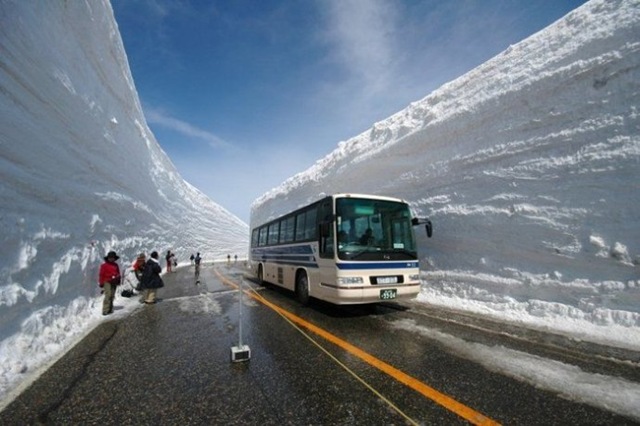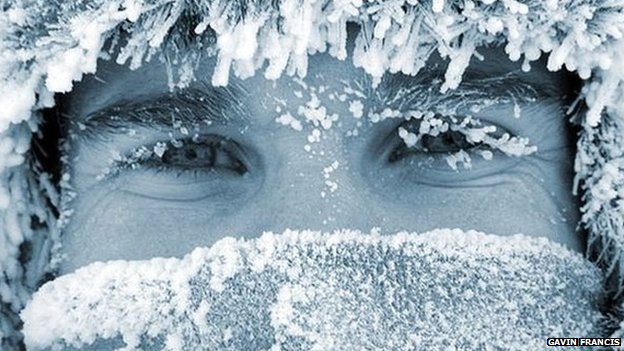Worst Case Scenario: Surviving Snow and Ice
With the impending snowstorm making its way down the East Coast this evening, we thought it would be especially pertinent to provide you with the best winter weather survival tips from our Worst-Case Scenario series. Because you know who wasn't prepared for winter weather? The Donner-Reed party, and look how that turned out.
1. Wear several layers of loose clothing: While exposure is the obvious danger in a freezing environment, you must also avoid overheating, which can lead to sweat that may freeze and cause hypothermia. Chilly and gross.
2. Breathe slowly, through one or more layers of clothing: Very cold air inhaled too rapidly can damage the lungs and chill the entire body, which is the last thing we want when we're trying to get warm!
3. Keep all of your skin covered at all times: Frostbite can kill human tissue in minutes under extreme conditions. And what would happen if your fingers were frostbitten? You wouldn't be able to turn pages!!!
4. Protect your eyes: Snow and ice amplify the effects of solar radiation, making snowblindness a serious possibility. Keep your eyes behind a nice pair of shades, even in cloudy conditions; remember, just because you can't see the sun doesn't mean it isn't still emitting harmful UV rays.
5. Carry a long, sturdy pole while walking over ice: Should you be walking across any large bodies of frozen water, take a long stick with you and hold it horizontally across your body around waist level, so that–and hopefully you don't–fall through the ice, the stick may save you from falling beneath the surface and plunging completely into the frigid water below.
6. Dig in during whiteout conditions: You should never travel during a severe storm, as you will quickly lose your way and expose yourself to dangers in the area. If you find yourself out in a whiteout seek nearby shelter or wait in your car until it has passed.
7. In the event that you fall through ice: breathe slowly, turn in the direction you came from, and use your elbows to pull yourself up from the water. DO NOT GET OUT OF THE WATER IMMEDIATELY. You should allow as much water as possible to drain from your clothes. Reach as far as possible onto the ice and pull yourself out, kicking your feet to help propel yourself out. Once you are out of the water, do not stand up. Remain flat and role away from the hole, which will distribute your weight more evenly and decrease your chances of breaking through the ice again.
Of course, you could also just stay home with a cup of hot cocoa and a good book. Up to you.


Jessica Tuckerman
Jessica Tuckerman holds a BA in Writing Arts with specializations in Creative Writing and New Media and Publication with a concentration in New Media Production and an MA in Writing from Rowan University in Glassboro, NJ. She is a founder of the creative writing experiment RRWrites.com and an avid blogger on her own at JTuckerman.com. When she is not writing she is usually chasing down her two large Labernards Luka and Belle.


